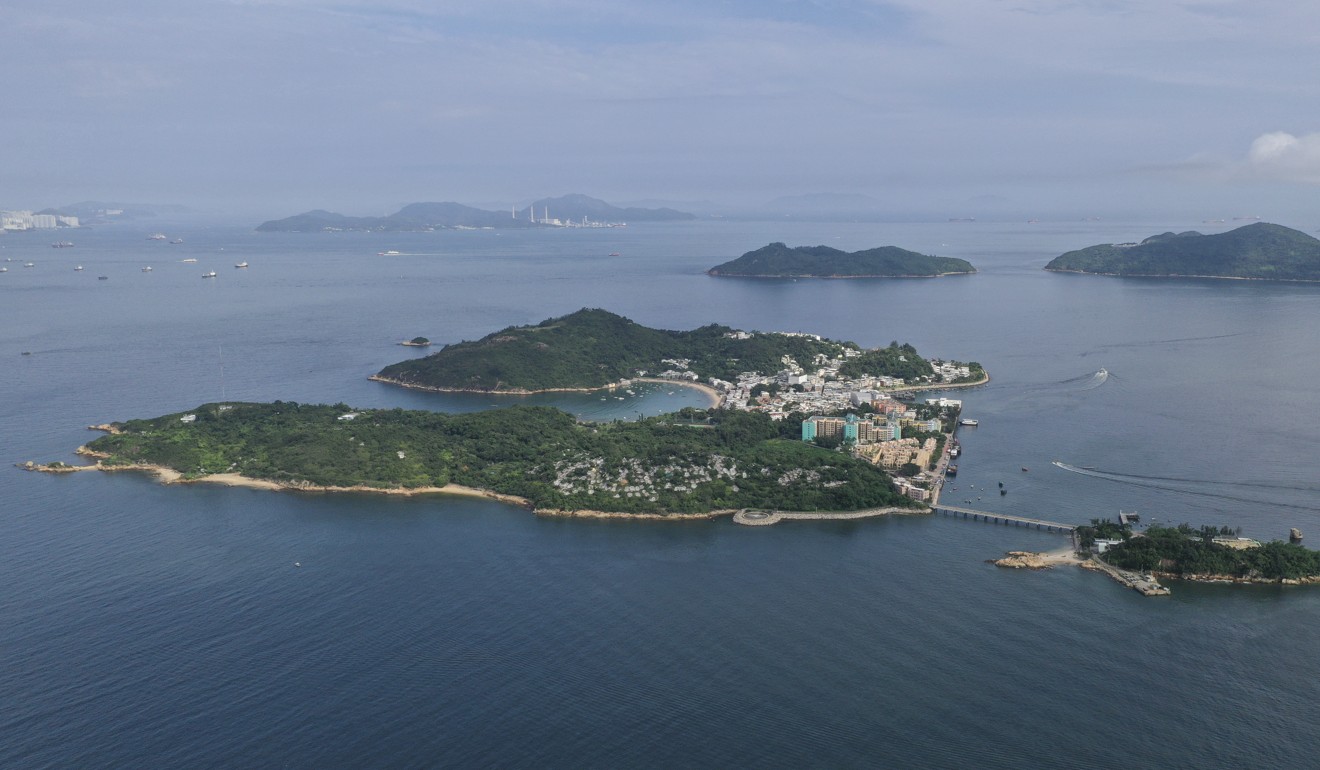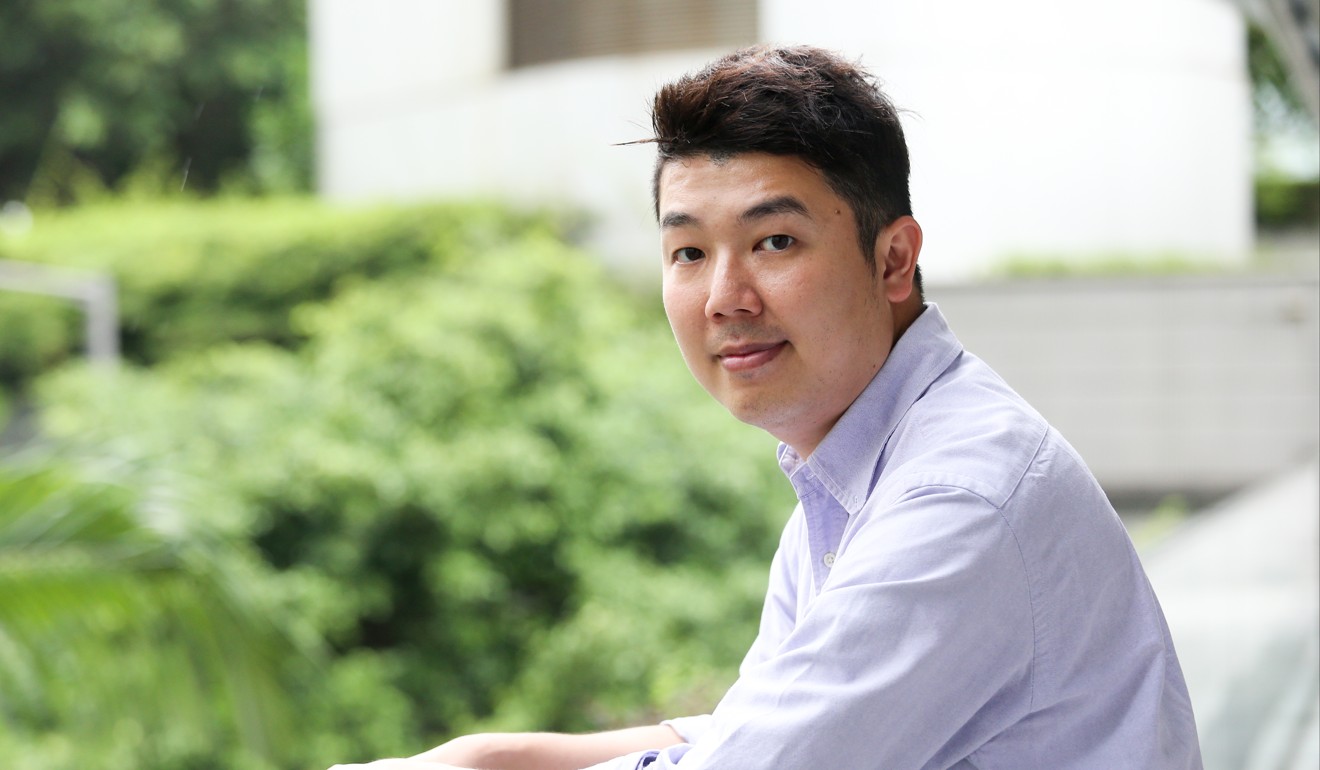
Hong Kong pressure group calls on Chief Executive Carrie Lam to take back all of Fanling golf course and reconsider Lantau island plan amid protest turmoil
- Housing group expresses doubt city leader’s plan to create artificial islands could be achieved amid ongoing protest crisis
- Separately, pro-Beijing party calls on government to speed up land resumption in rural areas
A Hong Kong advocacy group has called on the government to increase housing by taking over all of an exclusive golf course, expressing doubt that the city leader’s ambitious plan to create artificial islands would be achieved amid the ongoing protest crisis.
Man Yu-ming, chairman of the Federation of Public Housing Estates, said on Wednesday that
about 30,000 housing units could be built if the whole of Fanling golf course was taken back by the city, rather than 20 per cent of site as has been proposed.
A pro-establishment political party, meanwhile, suggested officials speed up land resumption in rural areas.
The recommendations were made as Chief Executive Carrie Lam Cheng Yuet-ngor focuses on her policy address in October, with housing among her main topics. No date has been set for Lam’s third policy address, unlike in previous years.
Lantau Tomorrow Vision was announced by Lam in her policy speech last year. The plan is to build a housing hub on land reclaimed from the sea – in the form of man-made islands – off Lantau.
The controversial project was delayed after Lam pushed through an unpopular extradition bill this year that plunged Hong Kong into months of protests and political turmoil.

“Land supply in Hong Kong will only get ever tighter after the recent social unrest,” said Man at a press media briefing. “We support reclamation, but I am pessimistic the reclamation plan can be implemented in the short term.”
In June, a funding request to the legislature for studies on the Lantau reclamation was pushed to the bottom of the finance committee’s agenda.
“With no date in sight for Lantau, the Fanling golf course appears to me to be the most realistic and efficient solution,” Man said.
Is there middle ground in Fanling golf course debate over housing crisis?
Last year, a government-appointed task force recommended taking back one-fifth of the 172-hectare golf course, an exclusive club with high membership fees, as a way to produce more housing for the city.
Other officials said keeping part of the site intact was important because it hosts international golfing competitions.
Separately, Hong Kong’s largest pro-Beijing political party, the Democratic Alliance for the Betterment and Progress of Hong Kong (DAB), said the government should invoke the Land Resumption Ordinance to accelerate the search of land to remedy the housing shortage.
The government is currently short some 150,000 public units from achieving its pledge of meeting housing applications within three years, according to official figures.

The land ordinance has been used 13 times for building public housing since 1997, the DAB said.
“The law has always been there. We just hope the government can speed things up and use it more proactively,” said Edward Lau Kwok-fun, a DAB lawmaker.
The law could be applied in rural areas earmarked for development, such as Hung Shui Kiu and New Territories North, to force private property owners to surrender land to the government for public housing.
The DAB took out a front-page ad in a local newspaper to make its point.
The government used the ordinance to assemble land and build new towns in the colonial period. Since the handover, the government has proposed “public-private partnership” in new town developments, allowing developers to swap land if their plots are planned for public housing.
Hong Kong land task force bunkered over club leases
A “land sharing” scheme proposed by Lam last year – and again postponed – would see the government take back land to facilitate private projects if developers agree to contribute 70 per cent of future floor plans to public housing.
Stewart Leung Chi-kin, chairman of the Real Estate Developers Association, said small-scale land resumption would be welcomed for private projects that had been stalled because of a lack of infrastructure.
“For example, if a housing project cannot proceed because the roads nearby are not wide enough, we welcome the government to resume some land so the roads can be widened – and this is collaboration,” he said.
“But for projects where developers had planned for years, they would not agree to surrender the whole site.”


